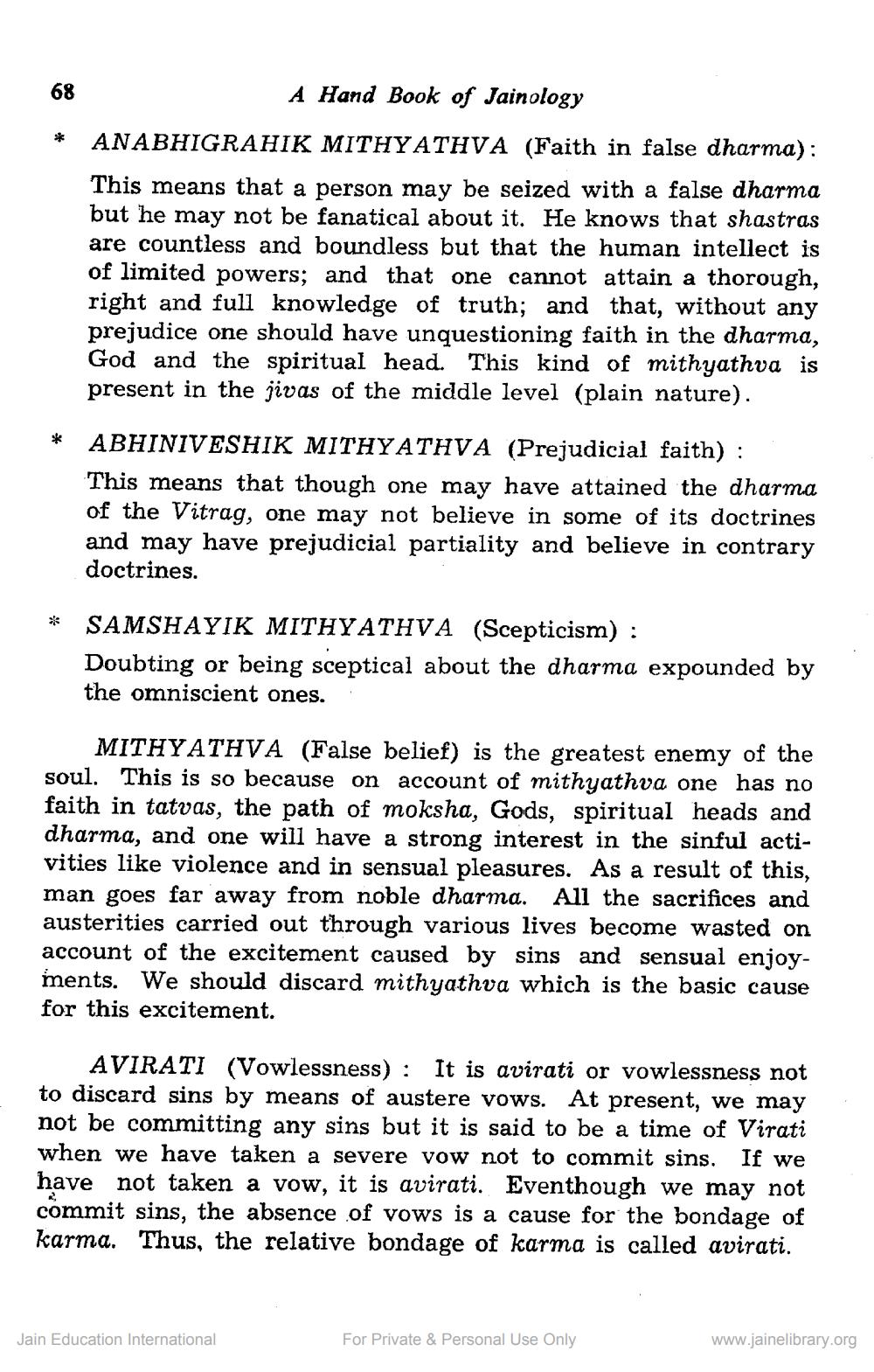________________
68
*
*
A Hand Book of Jainology
ANABHIGRAHIK MITHYATHVA (Faith in false dharma): This means that a person may be seized with a false dharma but he may not be fanatical about it. He knows that shastras are countless and boundless but that the human intellect is of limited powers; and that one cannot attain a thorough, right and full knowledge of truth; and that, without any prejudice one should have unquestioning faith in the dharma, God and the spiritual head. This kind of mithyathva is present in the jivas of the middle level (plain nature).
ABHINIVESHIK MITHYATHVA (Prejudicial faith):
This means that though one may have attained the dharma of the Vitrag, one may not believe in some of its doctrines and may have prejudicial partiality and believe in contrary doctrines.
SAMSHAYIK MITHYATHVA (Scepticism) :
Doubting or being sceptical about the dharma expounded by the omniscient ones.
MITHYATHVA (False belief) is the greatest enemy of the soul. This is so because on account of mithyathva one has no faith in tatvas, the path of moksha, Gods, spiritual heads and dharma, and one will have a strong interest in the sinful activities like violence and in sensual pleasures. As a result of this, man goes far away from noble dharma. All the sacrifices and austerities carried out through various lives become wasted on account of the excitement caused by sins and sensual enjoyments. We should discard mithyathva which is the basic cause for this excitement.
AVIRATI (Vowlessness) : It is avirati or vowlessness not to discard sins by means of austere vows. At present, we may not be committing any sins but it is said to be a time of Virati when we have taken a severe vow not to commit sins. If we have not taken a vow, it is avirati. Eventhough we may not commit sins, the absence of vows is a cause for the bondage of karma. Thus, the relative bondage of karma is called avirati.
Jain Education International
For Private & Personal Use Only
www.jainelibrary.org




